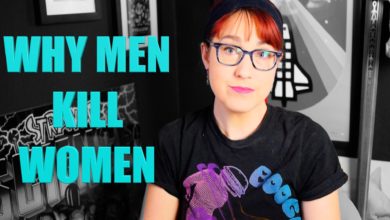
The brilliant and hilarious comic writer Lindy West did a piece for This American Life last week, which you can listen to here. In the story, West talks about online trolls, and how she decided to “feed” the worst one she ever had, who had created a Twitter account in the name of her recently deceased father. She ends up having a conversation with the troll, and it’s one of the best pieces of radio I’ve heard in ages.
I listen to TAL as a podcast, which I suspect is how many people listen these days despite its start as an immensely popular NPR show. TAL often produces two versions of their shows: one for broadcast on the radio, and an uncensored version for the podcast. Usually, this just results in a slightly richer and more entertaining experience for the podcast listener, who gets all the “fucks” and “shits” in people’s off-the-cuff reactions and jokes.
But with West’s story, the lack of censorship is absolutely crucial and, in a way, groundbreaking. That’s because the story is a rare instance of a mainstream show allowing a woman to accurately describe the hate she gets online.
I’ve done countless interviews for mainstream radio shows and print articles, and every time I’m faced with a hopeless task: clearly and effectively communicating the otherwise unbelievable level of hate women face online without violating any FCC rules. It’s impossible. It cannot be done. So the average listener hearing a radio piece about misogyny online can easily come away thinking that women need to toughen up, because what’s wrong with the occasional death threat or mean tweet?
I can’t just straight up read the worst messages, some of which you can find on my Page o’ Hate. And even if I could, the average audience member will never really understand the sheer volume of it by hearing me choose one or two selections.
West, though, reads some examples on the podcast version of the story with no bleeps, no euphemisms, no “c-word” and “b-word” substitutions, no summaries. And then she beautifully describes how dominating the swell of hatred can feel, and how even the toughest of us struggle sometimes with how to protect our mental health.
Anyway, grab a box of tissues and go listen to Lindy West’s brilliant story right the hell now.





I miss the old generation of trolls, the ones who would just say Jesse McCartney was related to Paul. This generation of trolls goes far beyond mere trolling. As evidenced by their sheer fanaticism.
The vocal fry segment drove me nuts as they waited until nearly the end to acknowledge that Ira Glass is basically the living embodiment of vocal fry (which has always seemed to me a part of the NPR aesthetic, like the unnecessary 5 second music clips between sections).
And they could have made a little more of the fact that no one has complained about him, athough part of the issue (which they don’t mention) is that vocal fry is more obvious when someone’s speaking pitch is higher, since it’s more of a contrast.
I loved her piece. Lindy is a treasure.
Dan: I have always found Ira Glass’ voice incredibly grating, and this might be part of why. I wonder if that’s also the problem I have with Garrison Keillor’s tales from Lake Wobegon (I can listen to him as characters all day, but Tales from Lake Wobegon make me physically uncomfortable when I listen.)
I can’t seem to be able to listen to it… :(
The best part was when the troll admitted, “Yeah, I really was a dick, wasn’t I?” I say hooray for him and for Lindy that they got to have this all-too-rare experience. Even though I was disgusted by what he did to her, I felt his transformation was somewhat heroic.